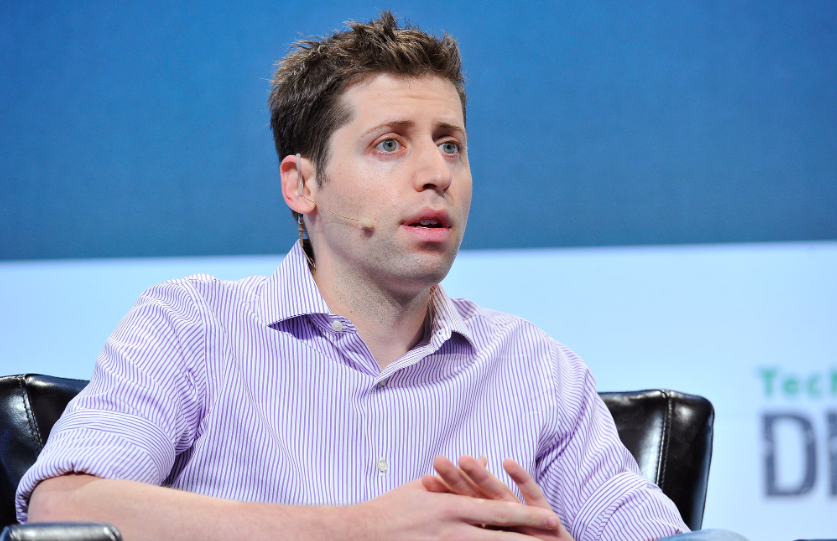OpenAI has laid out a new “economic blueprint” for the artificial intelligence industry that aims to ensure America remains at the forefront of innovation.
In a blog post that introduced the new document, the company stresses that it believes in America “because America believes in innovation”, and tries to position itself as a champion of tech leadership in the country, while also raising the alarm over the prospect of Chinese rivals catching up.
The company appears to be trying to create a sense of urgency regarding the need for more funding. In the document, it stresses that there is about $175 billion in global investment capital that has been earmarked for AI startups. And it warns that if American companies don’t attract most of that money, it could instead flow into Chinese-backed companies, expanding that country’s leadership in the AI industry at the expense of the U.S.
OpenAI is calling for stricter export controls on frontier AI models to prevent such a scenario, saying that access should be limited to the U.S. and allied nations only, similar to what the U.S. government is doing with computer chip technology. That follows a decision last year by the company to start restricting access to its own technology.
AI Economic Zones
At the same time, OpenAI is pushing for a more unified approach to regulate the AI industry in America, saying this should be done at the national level, rather than relying on a patchwork of state rules. Its strategy for regulation is based on four key pillars it says are critical to AI leadership – chips, data, energy and talent.
In addition to regulation, the company also outlined some ambitious plans for building the country’s AI infrastructure. In its document, it calls for the creation of “AI Economic Zones”, which sound similar to the U.K.’s proposed “AI growth zones” that were announced by its Prime Minister Keir Starmer yesterday. Within these economic zones, it calls for more lenient rules that would enable the construction of new solar, wind and nuclear power plants to be fast-tracked. It also wants to link these zones through a “National AI Infrastructure Highway” that would connect regional power and communications networks.
Each of the regions would specialize in a different aspect of AI, based on its local economy, OpenAI said. For instance, it suggests that Kansas might become a hub for AI-powered agriculture, while Pennsylvania or Texas could become proving grounds for AI energy innovation. It envisions that these states could work more closely with local industries to ensure wider adoption of AI technologies, accelerating innovation.
In addition, the company says it might be necessary for AI companies to have access to intelligence information, and to do that it should build more secure data centers with classified computing clusters, where it can keep its frontier models safe.
OpenAI said the blueprint is the first step in a wider “Innovating for America” initiative that aims to ensure AI technology will ultimately benefit all Americans, regardless of their background. On January 30, the company’s chief executive officer Sam Altman (pictured) will travel to Washington DC to meet Trump administration officials and detail its plans for AI-driven economic growth.
Call for a crackdown on foreign AI projects
OpenAI also discussed its stance on intellectual property in the document, and it’s here that its ideas begin to get more controversial. It argues that AI systems should be able to learn from “universal, publicly available information” without any restrictions. That appears to be an effort to bolster its argument that scraping the internet falls under “fair use” doctrine.
However, while defending its own rights to scrape the web for more data, OpenAI also calls for a crackdown on “unauthorized digital replicas”, including some foreign AI firms that it says “make no effort to respect or engage with the owners of IP rights”.
It goes on to say that if the U.S. and its allies don’t attempt to address this issue by initiating sensible measures designed to enhance AI in the long-term, “the same content will still be used for AI training elsewhere, but for the benefit of other economies”.
In other words, OpenAI appears to be arguing that it’s okay for it and other American AI companies to help themselves to any and all public data, but the government should make efforts to prevent those from less-friendly nations from doing the same.
Photo: News/Flickr
Your vote of support is important to us and it helps us keep the content FREE.
One click below supports our mission to provide free, deep, and relevant content.
Join our community on YouTube
Join the community that includes more than 15,000 #CubeAlumni experts, including Amazon.com CEO Andy Jassy, Dell Technologies founder and CEO Michael Dell, Intel CEO Pat Gelsinger, and many more luminaries and experts.
THANK YOU









